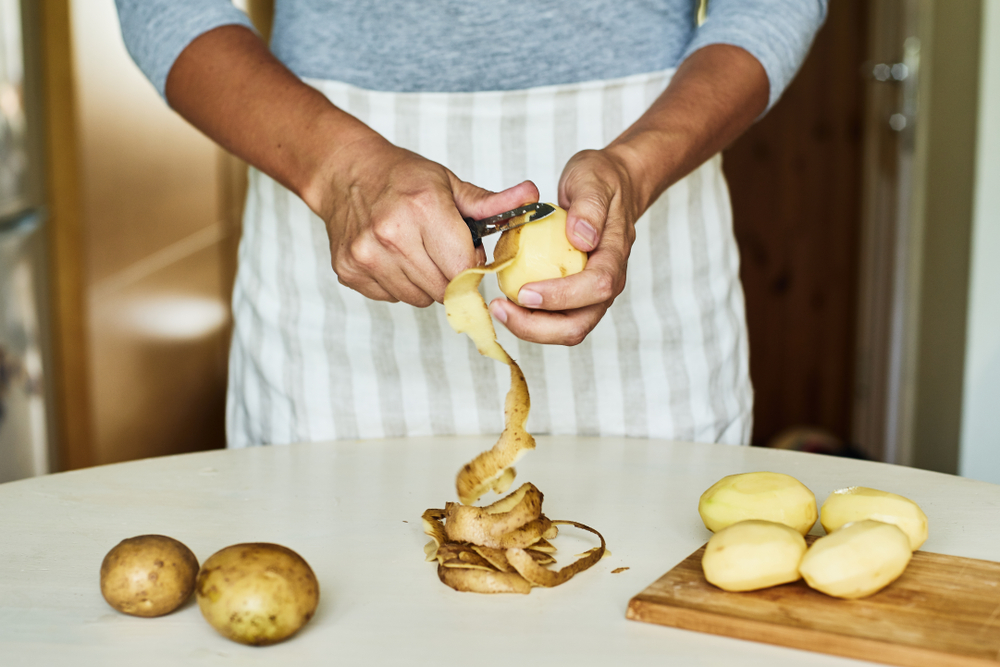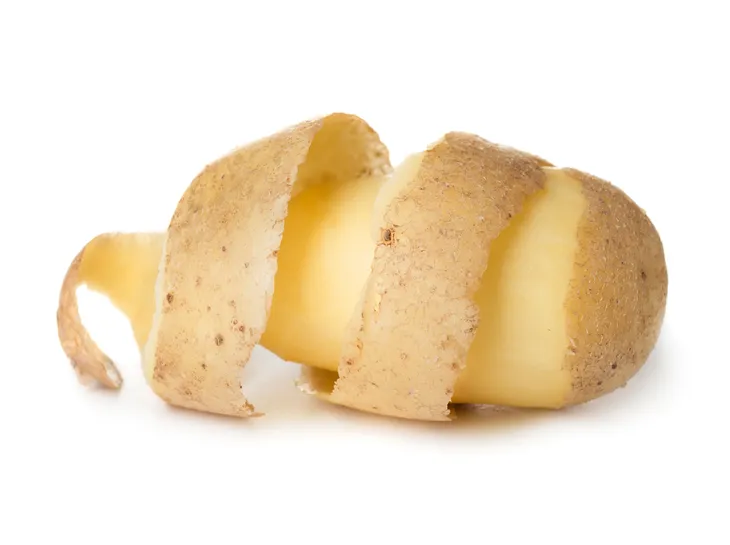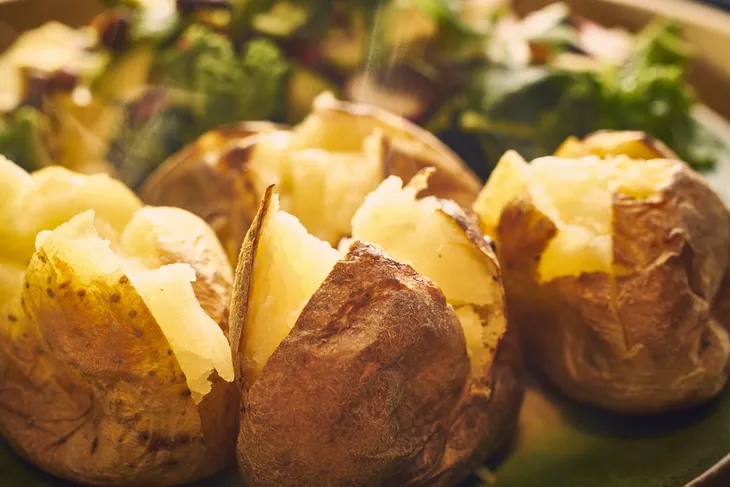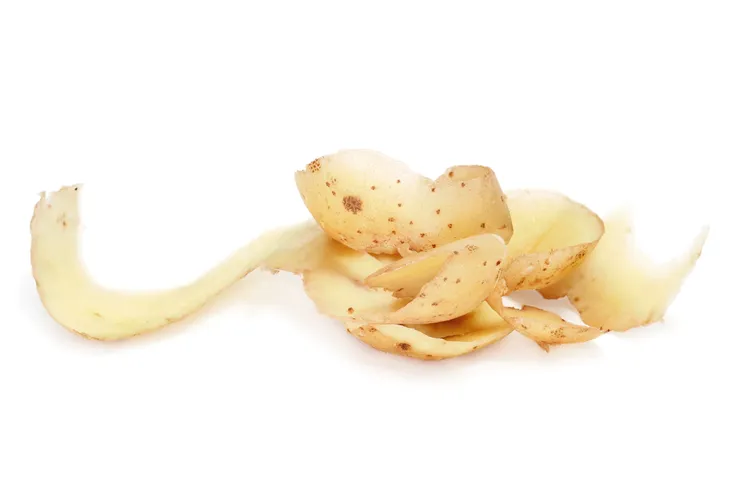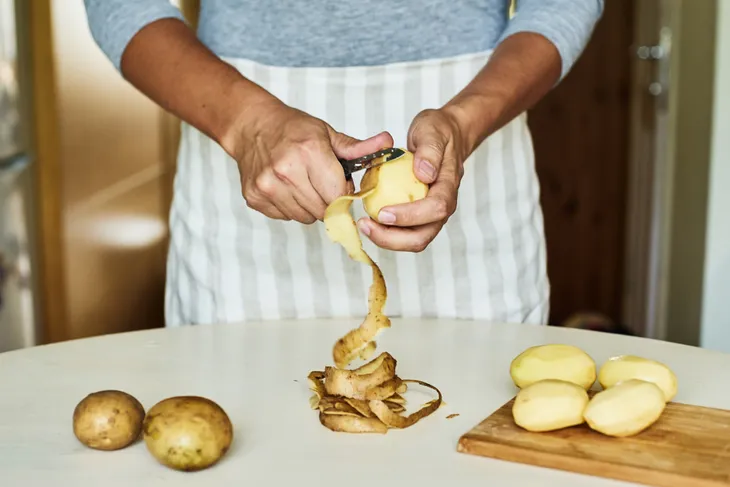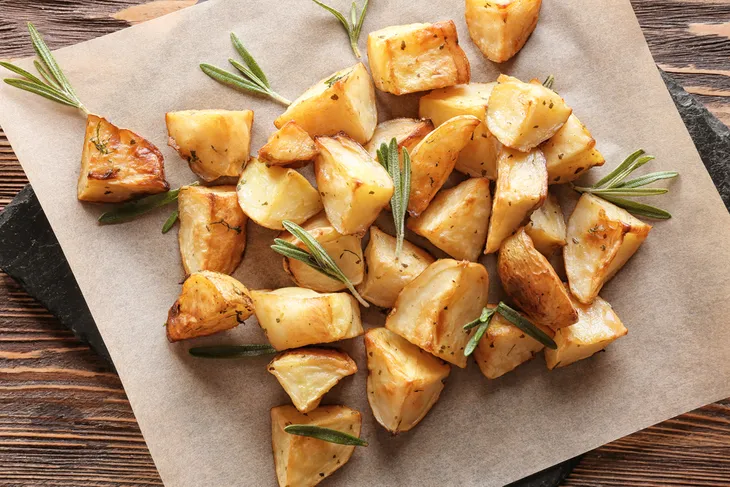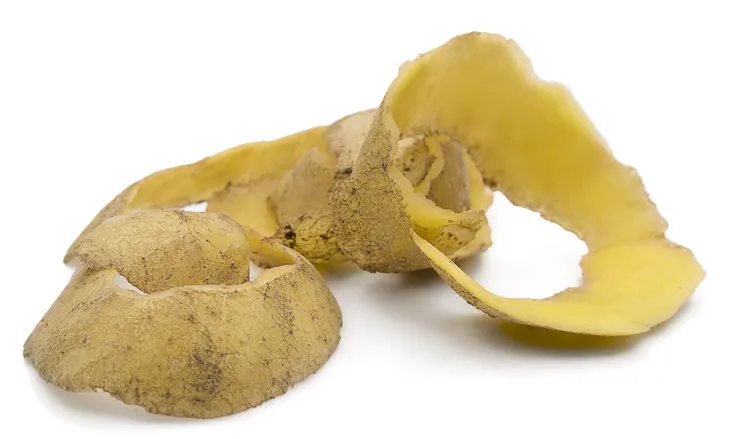Let me start with a clarification, by potato skins I’m referring to the skin covering potatoes and NOT the cheese and bacon topped pub grub. The potato is, hands down, one of the most dynamic foods out there. This simple though wildly popular root vegetable can easily be transformed from a hard, relatively flavorless raw item to many different types of cooked food choices in only a matter of minutes, from French fries to potato soup.
But there is one thing about the very popular potato that remains highly controversial: its skin. While some people insist on removing the skin prior to cooking— especially when that means making mashed potatoes—others insist that’s a silly mistake that robs the end product of its ultimate potential. But from a health perspective, what’s better? Should you leave the skins on or take them off? Let’s take a look at the benefits of leaving the skins of the potato intact when cooking your favorite potato-based foods…
Potato Skins are Full of Fiber
Health experts at Everyday Health agree that fiber can play an important role in the digestive process. Failing to get enough fiber—which can be found in ample supply in the skin of a potato—can make one feel sluggish and may prevent them from easily and efficiently processing their food. That can lead to discomfort and, potentially, significant health problems.
Experts suggest that most adults get around 30-grams of fiber each day, with less being necessary for young people and children. To ensure your family gets enough fiber in their daily diet, consider keeping the skins of your potatoes on, whether you’re making mashed potatoes or baked potato wedges.
They’re Low Calorie
If you’re on a strict diet and looking to get in shape, you should consider removing the skin from your meat, such as poultry and pork, prior to cooking. It would also be a good idea to remove the white fat, or marbling, that’s visible in the beef you purchase. Although removing this fat could compromise the flavor of the food you’re cooking, it will dramatically cut the total amount of cat and calories in the final dish.
But there’s no such need to remove the skin of your potatoes. Potato skins have no fat and are low in calories, according to LiveStrong, meaning they pose no significant threat to your diet. In fact, the fiber they contain could help keep you full for longer, giving your diet the boost it may need.
Keep Skins for Added Flavor
Many people remove the skins from their potatoes prior to cooking because they feel it actually detracts from the overall flavor of the dish, whether that dish is mashed potatoes, French fries, or potato soup. But what about eating the skins on their own?
As with many primary ingredients, on their own potato skins are not particularly flavorful. But you can change that by making key additions, from corn to beans, to margarine to cheese and chives. If you’re looking to keep things healthy, “load” your potato skins with some low-fat margarine and cheese and add slices of green onions, tomatoes, and peppers.
The Skin Helps Regulate Blood Sugar
Potatoes, like rice and many wheat-based products (including bread), are complex carbohydrates that, when broken down by the body, become simple sugars that are absorbed by the bloodstream. For people who must constantly monitor their blood sugar levels, such as those with type 1 or type 2 diabetes, eating foods like French fries, mashed potatoes, and potato bread can present significant health problems.
But this threat is partly mitigated by the presence of potato skins, which contain significant amounts of fiber and can thus slow the breakdown of carbohydrates into sugars. This can present many of the health issues presented when a lot of simple sugar is introduced into the body’s bloodstream. (To help manage blood sugar, eat these Everyday Foods That Lower Blood Sugar Levels).
Spuds are Easy to Prepare
Making a dish of potato skins alone can be very easy as they can be prepared in just about any way. If you prefer crispy potato skins—or something that’s similar to a potato chip—toss them in some herbs and spices (such as garlic, onion powder and cayenne pepper) along with olive oil, crushed black pepper and salt. Then lay them on a cooking sheet and place them in the oven.
An even quicker way to prepare delicious potato skins is to put them in a gently oiled cooking pan on medium to high heat. This way you can apply your herbs and spices as you cook, and can quickly and easily toss the skins while they inch closer to completion.
Waste Not…
If you’re looking to get the most out of your hard-earned money—and let’s face it, just about everyone is thinking this way these days—then think long and hard before removing your potato skins and tossing them in the trash.
Potato skins make your money go further in two important ways: first, they add to the overall volume of food that you’re preparing, whether it’s mashed potatoes, French fries, or a hearty country stew. Second, and perhaps more importantly, the fiber the skins contain will keep you feeling fuller for a longer period of time, lessening the chance that you’ll come creeping back into the kitchen looking for a snack.
